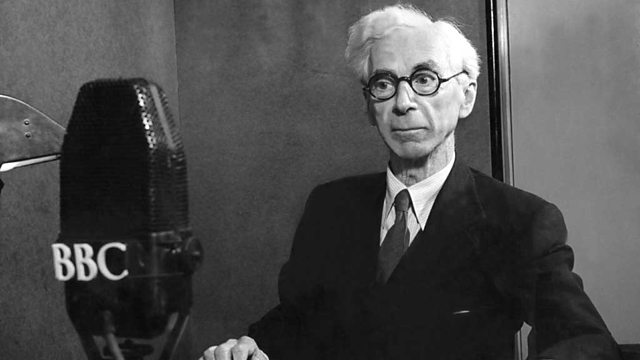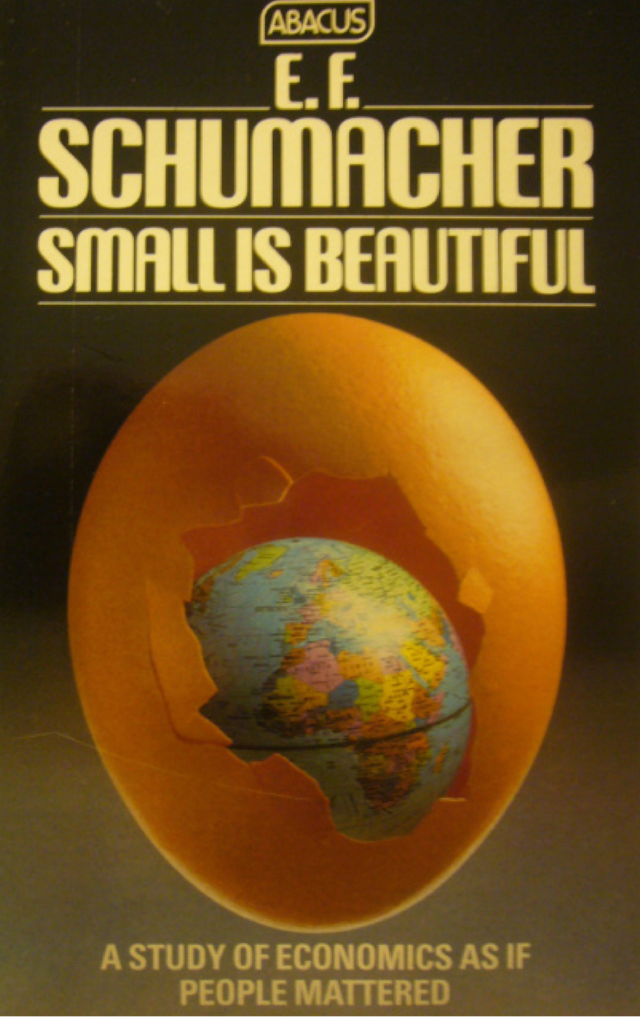Decentralized culture, the blockchain and art

I found these great lectures, the Reith Lecture series, by British intellectuals on BBC radio after WWII. The first series of lectures was given by Bertrand Russell on authority and the individual from 1949. Many of the issues Russell raises are still pertinent today. One thing he talks a lot about is centralization and the way it impacts culture. His main point is that globalization and centralized, industrial culture is bad for the arts because it requires the artist to compete with everyone, not just his/her local community, and it stifles local culture which doesn't grow organically as it would in isolation with competition from neighboring city/states. To quote Russell:
Where art flourished in the past it has flourished as a rule amongst small communities which had rivals among their neighbours, such as the Greek City States, the little Principalities of the Italian Renaissance, and the petty Courts of German eighteenth-century rulers.... There is something about local rivalry that is essential in such matters. . . . But such local patriotisms do not readily flourish in a world of empires. ... In those who might otherwise have worthy ambitions, the effect of centralization is to bring them into competition with too large a number of rivals, and into subjection to an unduly uniform standard of taste. If you wish to be a painter you will not be content to pit yourself against the men with similar desires in your own town; you will go to some school of painting in a metropolis where you will probably conclude that you are mediocre, and having come to this conclusion you may . . . take to money-making or to drink. ... In Renaissance Italy you might have hoped to be the best painter in Siena, and this position would have been quite sufficiently honourable.
So small is beautiful .. but that's not how the world works today and total collapse is probably the only way to go back to that model and the cost is too high. So what about crypto currencies and their promise of decentralization, how can they help culture grow? I don't expect tribal cultures with different stylistic sensibilities will spring up on or off-line around different cryptocurrencies .. that would mean the Steem tribe would have different art than the Ethereum people, or LTC or Nano or whatever. But obviously cryptocurrency has great potential to help artist break away from a gallery model and make direct sales to clients online. Can Steem grow to the point that artist bloggers earn enough from blog posts of their work that they don't ned a day job? Somehow I doubt it, but that would be great. Open Bazaar is one such model where clients and artists can find each other. Does anyone here have experience with it? I'm considering uploading some images there and trying it ...
Can cryptocurrencies revolutionize culture? I think that question rests on the degree to which culture exists online. As a painter I promote myself online but my practice remains fundamentally analogue. That type of culture which Bertrand Russell or Nicholas Pevsner spoke of, is firmly rooted in place and geography. As an immigrant American in Europe I stand apart from my local culture. Does the blockchain have the power to create a new marketplace of ideas and cultural exchange? Many people seem to think so, but I remain doubtful. One fear I have about joining Steemit and approaching crypto is that my thinking will become more libertarian. Cryptocurrency helps ethnonationalists move money around in secret channels, but their belief system is purely rooted in geography and place too, not anarchic decentralization, ultimately. Although I am not a tribalist, I do believe Russell is right that small cultures produce better art. Can we wed global decentralization with local identity and culture? How do we bridge that gap? What do you think?

I love this post. You brought up so many interesting points in your last paragraph which I've been trying to untangle myself. For me, my philosophical interest in cryptocurrency with respect to libertarianism is actually the opposite side of the same coin. The way I interpret the central mission of crypto is not as a backlash against government regulation, but against regulation that is dictated by interests working for the banking system, in the US at least. I firmly believe that there isn't much separation between banking and government, and that the laws against certain banking practices are thinly veiled efforts to uphold the system and prevent social mobility. It's so naive to think that the laws against ordinary Americans trading securities and literally allowing only millionaires to participate (i.e. "accredited investors") is "for our own good." That's why bankers only go to prison when they screw over other rich people (e.g. Bernie Madoff). Decentralization doesn't have to be about libertarianism, if you believe that the centralization is controlled by corporate interests, as I do.
Thanks for reading. This post is kinda sketchy, I was trying to pack too much in. But there's a conflict between cultural identification with place, tribal identity and the xenophobia and fear of outsiders it engenders. It seems we might not be able to have one without the other. I am not anti-globalist, I moved across the world and have lived for close to 17 years in CZ. But I also wish that art and culture could reclaim a place as it was in the Renaissance for example, haha, but as Russell points out, and he's not the only one of course, culture is wedded to place and rivalry. The economy is totally different today, international banking and the internet have destroyed the old model of culture, but we are in a transition and so old forms still exist. I dislike how cryptocurrency empowers the alt-right, but anarchic space have these side effects. Everyone can play here. I am not a libertarian, more of a social democrat, but I understand how government has been compromised by the banks. I'm too afraid of possible fascist futures to open my arms to embrace revolution or systems collapse. I'm sure you probably know some Ancient Egyptian analogy that'll be really cool. : )
I believe artsharing reward platform communities with their own cryptocoins will proliferate. We're already beginning to see this with music. Whether these platforms will function like Italian Renaissance principalities to nurture great art remains to be seen. Brian Eno speaks at times of "scenius being responsible for creative genius" — which may echo the point Bertrand Russell was making in your citation above. Do I believe art blockchains can create the conditions where scenius can occur? I guess I'm somewhat optimistic.
Coins mentioned in post: